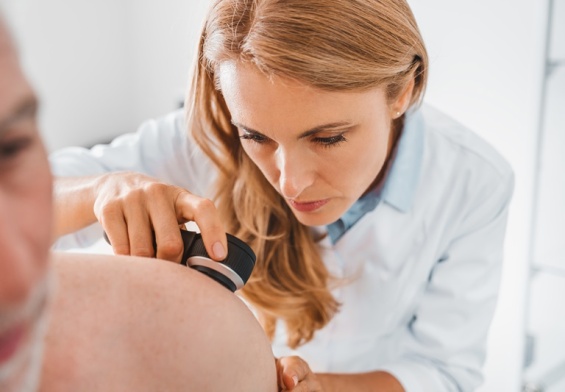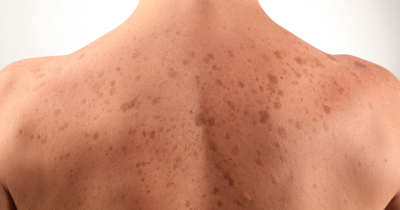 Everyone loves the magic and allure of a winter wonderland, with its Christmas sparkle and rich, crystal beauty. But nobody loves what winter’s harsh winds and dry air can do to their skin. First, there are those harmful UV rays. Did you know they can age you faster than just about everything else? This is a fact, which is why you not only need sunscreen on those days you head out for a sunny day at the beach; you also need it through the winter to minimize the sun’s effects, especially for skin cancer prevention. Then there’s the cold. Those frosty winds whipping around your face and other skin surfaces can dry out your skin, leaving it rough and scaly. And, finally, because of all those frigid temps, you’re likely turning up the heat inside your home, which is like adding insult to injury on your poor skin cells. And there you have it… the perfect combination for turning soft, supple skin into a veritable alligator bag. Following are some tips from dermatologists in New Jersey on how to prevent sun damage to skin in winter.
Everyone loves the magic and allure of a winter wonderland, with its Christmas sparkle and rich, crystal beauty. But nobody loves what winter’s harsh winds and dry air can do to their skin. First, there are those harmful UV rays. Did you know they can age you faster than just about everything else? This is a fact, which is why you not only need sunscreen on those days you head out for a sunny day at the beach; you also need it through the winter to minimize the sun’s effects, especially for skin cancer prevention. Then there’s the cold. Those frosty winds whipping around your face and other skin surfaces can dry out your skin, leaving it rough and scaly. And, finally, because of all those frigid temps, you’re likely turning up the heat inside your home, which is like adding insult to injury on your poor skin cells. And there you have it… the perfect combination for turning soft, supple skin into a veritable alligator bag. Following are some tips from dermatologists in New Jersey on how to prevent sun damage to skin in winter.
What winter does to skin
A few minutes here and there exposed to winter’s harsh elements can’t harm your skin, right? Wrong! Just a few unprotected minutes spent in the cold over several years can cause marked differences in the elasticity and softness of your skin. And, before you know it, you’re looking old way before your time. But that’s not all. In fact, aging isn’t even the most important reason for protecting your skin from winter’s potentially harmful effects. Because the sun’s UV rays can get through even on dreary winter days, skin cancer is still a consideration even during those cold, wintry months. Other effects of winter on skin can include age spots, spider veins, roughness, wrinkles, sagging, dryness, and blotchiness.
What you can do about it
The good news about winter is that there are concrete steps you can take to prevent its nasty effects on your skin. Here’s a helpful checklist:
✓ Bundle up. Keeping your face, hands, and neck covered when you step outside in winter is one of the simplest ways to keep those harsh wintry elements off your skin.
✓ Use sunscreen. UV rays can seep through, even on those dark winter days when it looks like the sun is hibernating. That’s why it’s important to load up on sunscreen just as much in winter as you would in summer.
✓ Avoid tanning beds. The sun isn’t the only thing that can give off harmful rays, even in winter. In fact, many folks spend more time in tanning beds throughout the winter months than they do in summer. Tanning beds can be even more damaging to your skin than the sun. They can also lead to skin cancer. For best prevention, stay away from these proven skin cancer risks.
✓ Wear sunglasses. Sunglasses aren’t just for summer. Because the skin around your eyes is the most delicate skin on your body, it can age more quickly than other areas. Find yourself a good pair of sunglasses that will keep UV rays and other harsh winter elements away from your eyes during these months.
✓ Eat a healthy diet. Yes, it’s true… a healthy diet is an essential part of every health concern there is. From helping to prevent aging to preventing skin cancer, getting enough vitamins and minerals through your diet is vital all year round. Be sure to consume four to five servings of fruits and vegetables daily in order to provide your skin with the nutrients it needs. Remember that medical conditions such as skin cancer, spider veins, and yes, even aging, are best prevented from the inside out.
If you’re not diligent, ‘Old Man Winter’ can sure do a number on your skin. But it doesn’t have to be that way. Follow some of these easy steps to softer, suppler winter skin that will also help to prevent such medical conditions as skin cancer and spider veins. Contact a dermatologist in New Jersey for more information on skin cancer prevention as well as preventing sun damage in winter.



